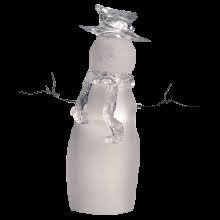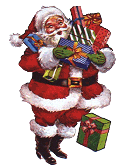

The Village Enjoys a Winter Fest

The 2017 Christmas mantel. For closeups, click on the houses alongside the story below.
For clickable mantel, click here
for alternate presentation.
 It has been two years since Mayor Albert Pittman's defeat in his run for United States senator. Some men might still feel regretful, and even bitter -- but not the mayor. He has never been one to look back; his motto in life is "Onward!" And so it is this Christmas season. He wants his villagers to have some fun. The past few years have been up-and-down ones for them, after all. Good ice one year, bad ice the next. Good health one year, an epidemic the next. Yes, there was a wonderful parade; but that was a long time ago. The winter olympics were wonderful, too, but they're fading from memory as well. It's time to return to simpler pleasures, the kind of old-fashioned fun that leaves a smile on everyone's face. Fun that doesn't break the bank -- the bank being the mayor's wife, Lavinia Pittman, who would rather fund a library or a hospital or even her husband's run for senator than -- good heavens! -- a costly fireworks display. So! No marching militias from abroad; no elaborate ski runs for athletes also from abroad. The Winter Fest is going to be of, by, and for the villagers, from Mrs. Appleby the laundress to old Farmer Hooks, and of course all of their children too. That's the way the mayor's philanthropist wife wants it, and that's the way it has to be.
It has been two years since Mayor Albert Pittman's defeat in his run for United States senator. Some men might still feel regretful, and even bitter -- but not the mayor. He has never been one to look back; his motto in life is "Onward!" And so it is this Christmas season. He wants his villagers to have some fun. The past few years have been up-and-down ones for them, after all. Good ice one year, bad ice the next. Good health one year, an epidemic the next. Yes, there was a wonderful parade; but that was a long time ago. The winter olympics were wonderful, too, but they're fading from memory as well. It's time to return to simpler pleasures, the kind of old-fashioned fun that leaves a smile on everyone's face. Fun that doesn't break the bank -- the bank being the mayor's wife, Lavinia Pittman, who would rather fund a library or a hospital or even her husband's run for senator than -- good heavens! -- a costly fireworks display. So! No marching militias from abroad; no elaborate ski runs for athletes also from abroad. The Winter Fest is going to be of, by, and for the villagers, from Mrs. Appleby the laundress to old Farmer Hooks, and of course all of their children too. That's the way the mayor's philanthropist wife wants it, and that's the way it has to be.

 The village has never had an ice-sculpting contest before, and it's a big hit. The villagers are mesmerized as they watch burly men take saws and chisels to blocks of ice and transform them into something as wondrous as -- an elephant! A polar bear! Even a giant owl! All of that magic, hidden in frozen water. Who would have thought it?
The village has never had an ice-sculpting contest before, and it's a big hit. The villagers are mesmerized as they watch burly men take saws and chisels to blocks of ice and transform them into something as wondrous as -- an elephant! A polar bear! Even a giant owl! All of that magic, hidden in frozen water. Who would have thought it?
"I'll bet Michelangelo studied a block of marble in just the same way, before he sculpted the Pieta," Will Jenkins says to his wife. Not that he was comparing his crew of carpenters to Michelangelo. But still. They were that good.
"You know the works of Michelangelo?" asks Harmony, surprised.
"Not me. Father Andrew does, though, and he's talked about it. As a young man he traveled to Rome; it was there that he found his calling."

 "The boys are so skilled at sculpting the ice," Harmony goes on. "Of course they would be, with you having taught them carpentry. Look at the wonderful job they've done on the Slaussens' house. It's so hard to believe that a year ago it was nothing more than a burned-out shell."
"The boys are so skilled at sculpting the ice," Harmony goes on. "Of course they would be, with you having taught them carpentry. Look at the wonderful job they've done on the Slaussens' house. It's so hard to believe that a year ago it was nothing more than a burned-out shell."
.gif)
 Will beams. "Yep. On time and on budget -- not that we had a budget," he says, chuckling. "If it weren't for Russell's father donating the lumber from his building supply, I don't know how we would have managed."
Will beams. "Yep. On time and on budget -- not that we had a budget," he says, chuckling. "If it weren't for Russell's father donating the lumber from his building supply, I don't know how we would have managed."
"Excuse me -- but the women did their share too!" his wife protests. "It certainly helped that Lavinia Pittman and Dorothea Sparks tried to outdo one another in their generosity. By the way, who won the money duel this time?"
 Smiling, Will answers, "Dorothea -- this time. She told me that she was personally very moved by the Slaussens' plight. I guess she hasn't always had money to burn."
Smiling, Will answers, "Dorothea -- this time. She told me that she was personally very moved by the Slaussens' plight. I guess she hasn't always had money to burn."
"Well, it's a happy ending for Leonard and Ginny and their children, to be sure."
Will and Harmony gaze with satisfaction at the rebuilt red cottage nearby, now a shining star in the village. The large, loving, and very happy family within has already decorated their Christmas tree -- "But! Without candles this time," a grinning Mr. Slaussen had promised the villagers at the potluck housewarming. It's a very small price to pay.
Just then, the Slaussens' eight-year old son -- the accidental arsonist who started the fire in the first place -- tugs at Harmony's coat and says, "My daddy and mum says you're not to leave the Fest without first stoppin' by for tea. They said I should make you promise."
"We'll be there, lad," Will tells him before turning to his wife and asking whether they had the time?



 "Oh yes," she says, tucking her hands in her fur muff. "Young Will and Felicity are perfectly happy. They've found a bench and a cat and a dog. Anyway, your aunt is with them," Harmony says. "She can take them through the Fest if they get bored, which they won't; they so love animals. She adds, "What a surprise they'll have on Christmas -- a new puppy! They'll be over the moon with joy." The puppy is Will's idea -- but then, he will not be the one to have to feed and train it. "Ah, but I will," he promises. It's clear to Harmony that he wants a puppy as much as his children do.
"Oh yes," she says, tucking her hands in her fur muff. "Young Will and Felicity are perfectly happy. They've found a bench and a cat and a dog. Anyway, your aunt is with them," Harmony says. "She can take them through the Fest if they get bored, which they won't; they so love animals. She adds, "What a surprise they'll have on Christmas -- a new puppy! They'll be over the moon with joy." The puppy is Will's idea -- but then, he will not be the one to have to feed and train it. "Ah, but I will," he promises. It's clear to Harmony that he wants a puppy as much as his children do.
Behind them, Eloise and her mother are on their way to a closer look at the ice sculptures. Eloise wants to touch them. Her mother is having none of it. "What if your hand sticks to the ice?" she asks. "Mommy! It won't stick if it isn't wet," Eloise cries. "Look at Jeffrey and Jimmy! Jeffrey's touching, and he's not sticking!" Mrs. Pettifore, exasperated, says, "You are not Jeffrey. You are not Jimmy. Those two boys will do anything, try anything -- they do not understand boundaries."
Young Eloise crosses her arms and says defiantly, "I have too many boundaries."

 Her mother shrugs. "That's the way it is. Now let's get a closer look so that we can vote. I think I like the polar bear best."
Her mother shrugs. "That's the way it is. Now let's get a closer look so that we can vote. I think I like the polar bear best."
Just to be contrary, Eloise says, "I like the elephant best." Independence has to start somewhere.
In a passing carriage sits the mayor's wife, having just arrived at the Fest. Lavinia Pittman, for once, is content that her husband has promised to keep to a budget; the cost of a Winter Fest could easily get out of control. What she sees so far, she likes: a good crowd, with vendors aplenty to serve food and drink. The vendors will earn a bit extra for the holidays and spend that money in the village shops, which is as it should be. In Lavinia's mind, the very best thing is for the villagers to be self-sufficient. If they can't be -- as in the case of the Slaussen family -- then, certainly, extend a generous hand. That, too, is as it should be. She spies her husband talking with Doctor Greene, but she prefers not to stop: she wants to be sure that the entire Fest is being properly managed.
Doctor Nicholas Greene sees her carriage and tells the mayor, "There's your wife passing by."
"Don't turn around, Nick, don't turn around!" the mayor says under his breath. "Pretend you don't see her."
"Because -- ?"

.gif) "Because she will learn, soon enough, that I've gone somewhat over budget, and I'd rather it be later." Mayor Pittman goes on to explain that he will be opening the doors of City Hall to all the village children, who will find inside a mountain of toys and favors. Of course, Santa Claus is stationed in front of the hospital with his own bag of toys, but his job basically will be to encourage boys and girls to go on next door to City Hall, where hot cocoa and gaily wrapped gifts await. "It just seemed like the right thing to do, because -- well, everyone likes presents at Christmas, you know." He sighs, remembering his own childhood without presents. "I admit I got carried away."
"Because she will learn, soon enough, that I've gone somewhat over budget, and I'd rather it be later." Mayor Pittman goes on to explain that he will be opening the doors of City Hall to all the village children, who will find inside a mountain of toys and favors. Of course, Santa Claus is stationed in front of the hospital with his own bag of toys, but his job basically will be to encourage boys and girls to go on next door to City Hall, where hot cocoa and gaily wrapped gifts await. "It just seemed like the right thing to do, because -- well, everyone likes presents at Christmas, you know." He sighs, remembering his own childhood without presents. "I admit I got carried away."
"Ah. So you'll be spending the night in our guest room."
"Possibly." Albert Pittman winks at his old friend. "It won't be my first, will it."
Grace Newcomb Greene, the doctor's wife, is leaving the house of a friend with whom she has confided the wonderful news: she is going to have a baby. Reluctant up until now to say anything lest there be complications (it will be the first for Nicholas Greene and her), Grace knows that she will soon be unable to hide her condition. It was only because her husband happened also to be her physician that she has been able to keep her secret so far; but now she feels confident enough to share her overwhelming joy at the prospect. I do hope it's a girl, she thinks to herself. Her husband won't admit it, but Grace believes he'd like to start out with a boy, no doubt to protect his younger sister whenever she came along.


.gif) The air is filled with the irresistible aromas of baking bread, boiling meats, and nicely charred sausages. Hearty appetites are welcome here! Those who want to wash down their fare with a little something will not be disappointed: besides teas and coffees, a variety of stimulating brews are being offered, from honey-based mead to full-bodied ales. There is something, as the Woodcuts note with appreciation, for everyone. The long-married couple, as they always do, have commandeered a convenient bench -- and will probably be found there still at the end of the day, because they have less interest in ice sculptures and Christmas-tree contests than in watching the village go by.
The air is filled with the irresistible aromas of baking bread, boiling meats, and nicely charred sausages. Hearty appetites are welcome here! Those who want to wash down their fare with a little something will not be disappointed: besides teas and coffees, a variety of stimulating brews are being offered, from honey-based mead to full-bodied ales. There is something, as the Woodcuts note with appreciation, for everyone. The long-married couple, as they always do, have commandeered a convenient bench -- and will probably be found there still at the end of the day, because they have less interest in ice sculptures and Christmas-tree contests than in watching the village go by.
"Who's that feller over by the ice carvings? I ain't seen him afore," Mr. Woodcut asks his wife. Mrs. Woodcut would know, if anyone.; the woman never missed a thing.
His wife did not disappoint. "He's a second cousin of the mayor. I believe he's in charge of the ice contest, keeping a tally of the votes. It's a shame about the smaller ice carvings," she adds. "They've begun to melt already."
"You have to think big," Mr. Woodcut declares. "Jest look at the size of them uncarved blocks! Why, you could chisel a coach-and-four out of 'em."
"As I'm sure you would, if only you could find the time," Mrs. Woodcut says with an ironic smile.
Her husband gives her a look. "Pardon me? Did I not help out as best I could with rebuilding the Slaussens' house, given my bad knees and all?"
"Yes, you did, dear. You made several trips to Russel's Lumber and Hardware for nails and what-not and brought them back to the site."
Mr. Woodcut lifts his stein and blows away a bit of foam. "I did. Indeed I did."
 Not far away, Miss Martha, whom all the children now know fondly as the Peppermint Lady, is about to pick up her supply of candy for the Fest. There has been a slight delay -- a snowstorm delayed delivery of the peppermint oil to the elderly woman who made up the candy for Miss Martha -- but now she will be able to hand out candies to every child who comes to the Winter Fest. Just in time!
Not far away, Miss Martha, whom all the children now know fondly as the Peppermint Lady, is about to pick up her supply of candy for the Fest. There has been a slight delay -- a snowstorm delayed delivery of the peppermint oil to the elderly woman who made up the candy for Miss Martha -- but now she will be able to hand out candies to every child who comes to the Winter Fest. Just in time!

While uplifting and spiritual Christmas carols will be sung inside the church during evening services, outdoors the music is of a more worldly sort, with lots of fa-la-la-la-la's and merry-merry-merry's. For one thing, it would be hard to skate to the beautiful but too-slow lyrics of "Silent Night." No, for now the skaters are happy to skate to the more danceable melodies of "I Saw Three Ships," and "The Holly and the Ivy."
Which does not keep them from slipping and falling. It happens. And if it's a young woman, and if she's particularly pretty, why then, there's bound to be a young man close by to help stand her back up.
Clyde and Margaret never fall. It's just the way they're made. They glide along the ice smoothly and effortlessly, and when they stop to gaze into one another's eyes, holding fast to one another's hands, the message they send is clear: We are so lucky. No one is luckier than we are. Lucky, and wealthy. Their nanny, a competent and well-paid woman, is watching their children at the other end of the rink, and that allows Clyde and Margaret to show the world, or at least the village, how very accomplished they are.
 Nearby, Alice, dressed in her most fetching outfit, is young enough to want to skate with anyone, even her younger brother Eddy, if Steven doesn't notice her soon. (How can he? He's fallen on his keister again at the other end of the rink.) Poor Steven. He has many skills, among them a gift for writing romantic poems, but he is not and never will be athletic. Or even, if it comes to that, coordinated. But he once wrote a lovely, moving poem that he mailed to Alice anonymously, and it stirred her heart. She recognized his writing and ever since has tried to draw him in. It's true what they say, she thinks. Opposites attract. She is outgoing; he's reserved. She's as comfortable on ice as she is on a dance floor. Steven would rather be reading a book. She is never, ever at a loss for words. Steven cannot speak to her without his tongue tying itself up in knots. But, oh, how his words flow on paper, and how they have her in their spell.
Nearby, Alice, dressed in her most fetching outfit, is young enough to want to skate with anyone, even her younger brother Eddy, if Steven doesn't notice her soon. (How can he? He's fallen on his keister again at the other end of the rink.) Poor Steven. He has many skills, among them a gift for writing romantic poems, but he is not and never will be athletic. Or even, if it comes to that, coordinated. But he once wrote a lovely, moving poem that he mailed to Alice anonymously, and it stirred her heart. She recognized his writing and ever since has tried to draw him in. It's true what they say, she thinks. Opposites attract. She is outgoing; he's reserved. She's as comfortable on ice as she is on a dance floor. Steven would rather be reading a book. She is never, ever at a loss for words. Steven cannot speak to her without his tongue tying itself up in knots. But, oh, how his words flow on paper, and how they have her in their spell.
"Eddy! Will you get those skates fastened once and for all?"
No, something isn't right, her brother insists, and finally Alice says, "Never mind. I'll skate alone." And if I have to knock Steven down to do it, I will make contact with him. I will.
The course of love is sometimes too slippery to run smooth.
 Santa has just set up shop in front of the hospital with his bag full of enticing toys: a horn, a doll, a ball, a top, and more besides. But his bag can hold only so much (and, anyway, the toys in his bag are intended for the sick children inside). Santa wants any young visitors simply to have an idea of the gifts that are waiting for them -- right next door! -- which, granted, is a bit of a complication this year. He explains the arrangement to the first children to show up and wonders how many times he will be repeating himself in the course of the Winter Fest. How much easier if he could have set up on the steps of City Hall instead of waiting for some meeting inside to be over. Well, it can't be helped. Watching the children on ice enjoying a game of crack-the-whip, Santa thinks, As soon as they're done, I will be overrun. He smiles. Children and laughter and glee. Yes. This is his mission in life.
Santa has just set up shop in front of the hospital with his bag full of enticing toys: a horn, a doll, a ball, a top, and more besides. But his bag can hold only so much (and, anyway, the toys in his bag are intended for the sick children inside). Santa wants any young visitors simply to have an idea of the gifts that are waiting for them -- right next door! -- which, granted, is a bit of a complication this year. He explains the arrangement to the first children to show up and wonders how many times he will be repeating himself in the course of the Winter Fest. How much easier if he could have set up on the steps of City Hall instead of waiting for some meeting inside to be over. Well, it can't be helped. Watching the children on ice enjoying a game of crack-the-whip, Santa thinks, As soon as they're done, I will be overrun. He smiles. Children and laughter and glee. Yes. This is his mission in life.
"The mayor happened. You know how he is about presents at Christmas. Hopefully he'll be able to bring Lavinia around, since she's the one who's funding the Fest," the councilman adds, shrugging. "If not -- well, there's always Dorothea Sparks."
.gif) Pettifore nods, but he's not convinced that the charming widow Sparks will come to the rescue. "Still, how about this: we simply tell Dorothea Sparks the truth, that the mayor has put the welfare of every child in the village ahead of his own interests, and so he dipped into the village's rainy day fund, and now the fund needs a bit of topping off."
Pettifore nods, but he's not convinced that the charming widow Sparks will come to the rescue. "Still, how about this: we simply tell Dorothea Sparks the truth, that the mayor has put the welfare of every child in the village ahead of his own interests, and so he dipped into the village's rainy day fund, and now the fund needs a bit of topping off."
The other councilman thinks about that. "All right, then. First, Lavinia. If that fails, Dorothea. If that succeeds, back to Lavinia."
But if everything fails? "Then we run for the hills, before Lavinia can catch us," says Attorney Pettifore with a dry smile.
 Not far from the plotting councilmen, Johnny Hooks has just spied his wife going through one of her wonderful routines on the ice. For a moment he is transfixed: she is so very graceful. A mere slip of a thing, she is as adept at the lutz as any other skater he's seen. She is a wonder, and she will always be his first love.
Not far from the plotting councilmen, Johnny Hooks has just spied his wife going through one of her wonderful routines on the ice. For a moment he is transfixed: she is so very graceful. A mere slip of a thing, she is as adept at the lutz as any other skater he's seen. She is a wonder, and she will always be his first love.
 But the sea may well be his second. When Johnny Hooks stepped off the boat after his last long and harrowing voyage, he vowed he would never go to sea again. It was back to his father's farm for him. After all, farm life, though hard, was not dangerous. You didn't worry that at any moment your farmhouse could be stove in by a whale and sunk. You didn't worry that a rogue wave could sweep you from your tractor and into the watery deep. You plowed the land and fed the cows and if you worried, it was about whether it would rain before you harvested your crop of hay.
But the sea may well be his second. When Johnny Hooks stepped off the boat after his last long and harrowing voyage, he vowed he would never go to sea again. It was back to his father's farm for him. After all, farm life, though hard, was not dangerous. You didn't worry that at any moment your farmhouse could be stove in by a whale and sunk. You didn't worry that a rogue wave could sweep you from your tractor and into the watery deep. You plowed the land and fed the cows and if you worried, it was about whether it would rain before you harvested your crop of hay.
And yet. And yet. Johnny has run into an old shipmate at the Fest, and, while the man no longer crews on ships that cross vast oceans, he has found work on a Gloucester schooner, fishing for cod on the Grand Banks southeast of Newfoundland. "Oh, and hard labor it is, man," Elijah admits. "Once they launch that dory with ye in it, ye'd best not come back to the ship without yer half-ton of catch. And then back out again ye go for another half-ton. Why, I've finished the day with bloody hands and a broken back from hauling cod -- but the money, she's good. Real good. And ye earn every blessed cent of it. Providing the work don't kill ye first. Or yer dory don't go down. Or the mother ship isself."

 A Gloucesterman fished year-round, winter included. Johnny knew what it meant to be on a hostile sea in bitter weather; it wasn't a prospect he looked forward to. But winter is a slack season for farming, despite the endless list of jobs to be checked off. Old Farmer Hooks was getting on in years and couldn't do most of the chores, it's true, but they had a couple of farmhands to help now. And some of that real good money, as Elijah called it, could come in handy. With visions of dollar bills dancing through his head where perhaps visions of sugar-plums should have been, Johnny takes a deep breath and beckons his lovely, graceful Sonja to skate over to him. A winter or two apart would be hard, but the extra income would be welcome. He's already spoken to his father at the Fest, and the elder John Hooks thinks it's not a terrible plan. (Of course, Old Farmer Hooks has never himself been to sea.) But what will Sonja, pretty Sonja, think of Johnny's idea?
A Gloucesterman fished year-round, winter included. Johnny knew what it meant to be on a hostile sea in bitter weather; it wasn't a prospect he looked forward to. But winter is a slack season for farming, despite the endless list of jobs to be checked off. Old Farmer Hooks was getting on in years and couldn't do most of the chores, it's true, but they had a couple of farmhands to help now. And some of that real good money, as Elijah called it, could come in handy. With visions of dollar bills dancing through his head where perhaps visions of sugar-plums should have been, Johnny takes a deep breath and beckons his lovely, graceful Sonja to skate over to him. A winter or two apart would be hard, but the extra income would be welcome. He's already spoken to his father at the Fest, and the elder John Hooks thinks it's not a terrible plan. (Of course, Old Farmer Hooks has never himself been to sea.) But what will Sonja, pretty Sonja, think of Johnny's idea?
He will soon find out.
The treats may not all make it to City Hall.
Samuel Rickens watches Agnes from the steps of the shut-down granary, which he is dutifully sweeping, even though the building is not being used for the Fest, or at all. ("You never know," said the mayor. "We may have to press it into service in an emergency.")
"What emergency that could be, I ain't got no clue," Sam tells Tim Conner, who has just showed up, a bit tipsy, from The Caboose where he's enjoyed a round of Christmas toddies with some of his pals. Tim was supposed to be the one to hoist the red flag signalling the opening of the Fest, but he's a bit late on that front. Lucky for him, his old friend Sam, a teetotaller for years now, was right there and able to jump in for him.
"I'm beholden to you, mate," Tim says, hiccuping. "Did the mayor notice the switch, I ask you?"
"Oh, yeah. I told him you was unavoidably engaged. He was too occupied to ask at what."
"Good. I think." Tim actually was devoted to the mayor and thrilled that he lost his race for U.S. Senate and would be staying in the village. The last thing Tim wanted to do was to disappoint Mayor Albert Pittman. And yet that's exactly what he'd done. He tried to make up for it by polishing the brass flagpole as far as he could reach with the sleeve of his shirt.

It isn't the first time that there's been a snowman competition in the village. Several years earlier, there was a last-minute contest that was thrown together for the children (after an unexpected, perfect snowman-making snowfall). Schoolteacher Mildred Soames even donated a sled for the Grand Prize, and the children showed great imagination in their efforts to win it. But this contest! The prize for best snowman is a toboggan! It's almost unbelievable! A four-man (or, in this case, boy) toboggan! The boys eagerly roll and pat and lift and shape and accessorize many balls of snow; they are on fire to win that beautiful, brand-new toboggan.
But ... where are the girls? Do they not like snow? Do they not like tobogganing? Well, yes and no. They like racing downhill as much as anyone, but they have decided to leave the cold hard work of forming snow to their brothers and cousins. The real magic for them lies in the beauty of a decorated Christmas tree.

 Like the competition for best ice sculpture, the village has never before had one for prettiest Christmas tree. The girls have strung long ropes of cranberries and popped corn and colored paper to twist around the trees. Some have made star-shaped pastries while others have rummaged through relatives' attics for glass and ribbon garlands, and bright-colored glass balls from Germany. One pair of sisters had the patience to wrap the bare branches of their tree with strips of cotton to imitate snow; their cousins liked the idea so much that they did the same.
Like the competition for best ice sculpture, the village has never before had one for prettiest Christmas tree. The girls have strung long ropes of cranberries and popped corn and colored paper to twist around the trees. Some have made star-shaped pastries while others have rummaged through relatives' attics for glass and ribbon garlands, and bright-colored glass balls from Germany. One pair of sisters had the patience to wrap the bare branches of their tree with strips of cotton to imitate snow; their cousins liked the idea so much that they did the same.
 The results, most agree, are wonderful. They all deserve to be winners! The votes mount up as excitement builds among the girls. The prize for best tree is almost too good to be true: a collection of games, including the Game of Graces, a yo-yo, a Noah's Ark with pairs of many animals, a game of Battledore and shuttlecock, a Bilbo Catcher, a chalk board set, and a game of dominoes. A whole big basket of fun for rainy days and winter days and outdoor days. Every single girl wants more than anything to win that prize. Every. Single. Girl.
The results, most agree, are wonderful. They all deserve to be winners! The votes mount up as excitement builds among the girls. The prize for best tree is almost too good to be true: a collection of games, including the Game of Graces, a yo-yo, a Noah's Ark with pairs of many animals, a game of Battledore and shuttlecock, a Bilbo Catcher, a chalk board set, and a game of dominoes. A whole big basket of fun for rainy days and winter days and outdoor days. Every single girl wants more than anything to win that prize. Every. Single. Girl.
 Mickey Sullivan -- who is in charge of the snowman's contest, since he's done one before -- happens to be sweet on one of the girls, whose decorated tree he happens to think is the best. But just to make sure that she wins, he takes it upon himself to set a bird's nest, still with some leftover shells in it, on an inner branch of the tree. "That's for good luck," he explains to his cousin Billy, who's watching the act with curiosity.
Mickey Sullivan -- who is in charge of the snowman's contest, since he's done one before -- happens to be sweet on one of the girls, whose decorated tree he happens to think is the best. But just to make sure that she wins, he takes it upon himself to set a bird's nest, still with some leftover shells in it, on an inner branch of the tree. "That's for good luck," he explains to his cousin Billy, who's watching the act with curiosity.
Billy says, "I thought a glass pickle ornament was for good luck."
"Well, I don't have a glass pickle ornament," Mickey says. "This will have to do. It will bring just as good a luck." To make sure of that, Mickey crosses his fingers as he gently sets down the nest.
 Old Farmer Hooks is hauling yet another load of kids behind his aging chestnut nag, wondering how many more years she can go on. In a way, he can relate to his horse: they're both getting on, both getting tired, both probably equally irritated by the screaming, cheering children trailing behind them.
Old Farmer Hooks is hauling yet another load of kids behind his aging chestnut nag, wondering how many more years she can go on. In a way, he can relate to his horse: they're both getting on, both getting tired, both probably equally irritated by the screaming, cheering children trailing behind them.
If I hear one more kid yell "Faster, can't you go any faster?" I swear I'll yank 'em off the sleigh and make 'em walk. That one with the white boots -- the farthest behind me and yet the loudest mouth, that one. He sighs. Where do they get their energy?
It occurs to him that he might not have to take on such tasks as giving rides to noisy kids if there were more money coming in to the farm during winter. While his son has made the farm solvent by sheer hard work and enterprise, some years they survive more or less by the skin of their teeth. One middling harvest, and that's what can happen. And this year the harvest was middlin', both for them and for their tenant farmers.
But -- if Johnny did decide to work on a boat out of Gloucester, why, that could solve the money crunch this year. Johnny wouldn't have to go every winter, after all, because some years the farm did pretty well.
 Even Farmer Hooks, a landlubber, knows that going to sea in the winter is both truly dangerous and definitely miserable. But he has every confidence that his son would be an asset to any captain who took him on. So ... maybe give it a try just the once. What could happen if it's just the once?
Even Farmer Hooks, a landlubber, knows that going to sea in the winter is both truly dangerous and definitely miserable. But he has every confidence that his son would be an asset to any captain who took him on. So ... maybe give it a try just the once. What could happen if it's just the once?
Not far from the cheerful sleigh riders, Mrs. Appleby, the village laundress, has run into Mrs. Jack Jones, the wife of a distant cousin and someone she still thinks of as Miss Bates from the old days. Mrs. Appleby is still without an assistant, as Mrs. Slaussen (with laundry of her own to do for a husband and seven children) was not able to accept her offer of employment. "She did try for a couple of weeks, but it was never going to work," Mrs. Appleby explains. "The poor thing was dead on her feet."
Miss Bates did not become Mrs. Jack Jones until quite late in life. She has no children and the thought of seven of them is overwhelming. Seven jackets, seven hats, seven pairs of mittens and gloves, seven sets of underclothes, seven bowls of oatmeal, seven doses of cod liver oil, seven pencils and rulers and tablets, seven of everything. She had only her Boots to care for, and even he was sometimes more than she could manage.
"How is Boots working out, by the way?" Mrs. Appleby asks, cautiously. She is well aware how fond Mrs. Jack Jones was of her old dog Rusty.
 "Well, you know how it is," Mrs. Jack Jones admits. "No one can ever replace a pet you love. You just have to make room in your heart for another." Which was easy to do, because Boots is so very lovable. Filled with mischief and joy -- and much too much energy -- Boots is too easily distracted to follow Mrs. Jones's every step the way her devoted Rusty did. But Boots is ... well, a happy dog, and he makes her laugh more often than not. And for that Mrs. Jones loves him very much. Even Mr. Jones, who thought they were too old for another dog, loves Boots.
"Well, you know how it is," Mrs. Jack Jones admits. "No one can ever replace a pet you love. You just have to make room in your heart for another." Which was easy to do, because Boots is so very lovable. Filled with mischief and joy -- and much too much energy -- Boots is too easily distracted to follow Mrs. Jones's every step the way her devoted Rusty did. But Boots is ... well, a happy dog, and he makes her laugh more often than not. And for that Mrs. Jones loves him very much. Even Mr. Jones, who thought they were too old for another dog, loves Boots.

 When Dorothea Sparks first arrived in the village, she was well aware of her reputation as a rich, merry widow. She laughed too much; she danced too much; she was far too merry and much too gay around other women's husbands. But the truth was that she had no designs other than to know life to the fullest. Having been widowed more than once, she knew more than most how fleeting life could be. And having grown up poor, she also knew more than most how much a simple act of charity could improve someone else's life. So it was that when someone had a need, she was there. She did not broadcast the fact, and indeed usually insisted on remaining anonymous after donating to a cause. (Not that she could remain anonymous for long. The village was small, and word got around.) If she had been a doctor or a lawyer or a teacher, she could heal or help or teach. But she was none of those things. All she had was money, and she was determined to have it make a difference in the lives of the less fortunate.
When Dorothea Sparks first arrived in the village, she was well aware of her reputation as a rich, merry widow. She laughed too much; she danced too much; she was far too merry and much too gay around other women's husbands. But the truth was that she had no designs other than to know life to the fullest. Having been widowed more than once, she knew more than most how fleeting life could be. And having grown up poor, she also knew more than most how much a simple act of charity could improve someone else's life. So it was that when someone had a need, she was there. She did not broadcast the fact, and indeed usually insisted on remaining anonymous after donating to a cause. (Not that she could remain anonymous for long. The village was small, and word got around.) If she had been a doctor or a lawyer or a teacher, she could heal or help or teach. But she was none of those things. All she had was money, and she was determined to have it make a difference in the lives of the less fortunate.
Now, after several years in the village, she truly felt that she was fitting in. Oh, she would always be "from afar," and -- for some silly reason -- she would probably always be considered Lavinia Pittman's rival. But now when she moved among the villagers, it was to friendly how-do's and kindly wishes, and always to smiles. There was a while at the beginning when she had considered moving on; the atmosphere was that chilly. No longer. Dorothea was where she wanted to be, with people she wanted to be with, in a season that was her favorite. She hoped that at the Winter Fest she would run into the mayor's wife (not literally, although some might have made a joke of that). Now feeling a part of the village event, she wanted to extend to Lavinia her warmest greetings of the season.
 Meanwhile, there are children to hug, parents to embrace, dogs to pet, wine to drink and sausages to taste. The air is rich with laughter and song and the heady fragrance of balsam. It's Christmas.
Meanwhile, there are children to hug, parents to embrace, dogs to pet, wine to drink and sausages to taste. The air is rich with laughter and song and the heady fragrance of balsam. It's Christmas.
.jpg)